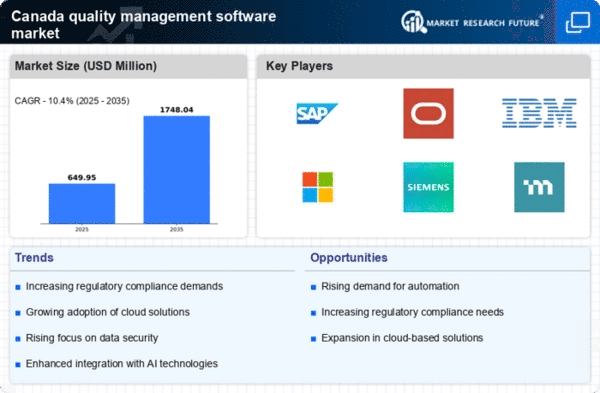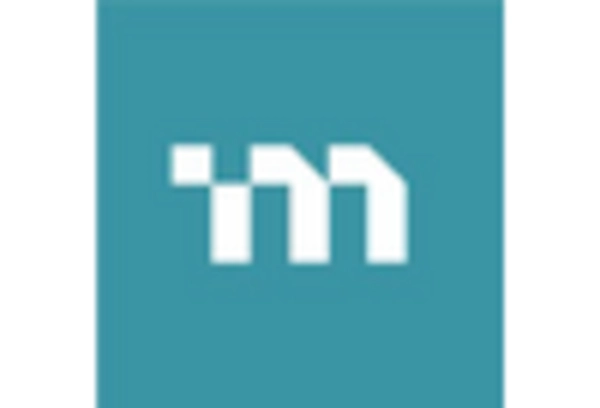Rising Demand for Quality Assurance
The quality management software market in Canada. experiences a notable surge in demand driven by the increasing emphasis on quality assurance across various industries. Organizations are recognizing the necessity of maintaining high standards to enhance customer satisfaction and loyalty. This trend is particularly evident in sectors such as manufacturing and healthcare, where quality control is paramount. According to recent data, the market is projected to grow at a CAGR of approximately 10% over the next five years, reflecting the critical role of quality management software in streamlining processes and ensuring compliance with industry standards. As businesses strive to improve operational efficiency, the adoption of quality management solutions becomes essential, thereby propelling the growth of the quality management-software market in Canada.
Increased Focus on Customer Experience
In the current landscape, the quality management software market in Canada. is significantly influenced by the heightened focus on customer experience. Organizations are increasingly aware that delivering superior products and services is essential for retaining customers and gaining a competitive edge. This shift in focus necessitates the implementation of robust quality management systems that can track customer feedback and quality metrics effectively. As a result, companies are investing in software solutions that facilitate the collection and analysis of customer data, enabling them to make informed decisions. This trend is expected to drive the quality management-software market, with a projected growth rate of around 12% annually as businesses prioritize customer-centric approaches.
Shift Towards Data-Driven Decision Making
The quality management software market in Canada. is witnessing a transformative shift towards data-driven decision making. Organizations are increasingly recognizing the value of data analytics in enhancing quality management processes. By leveraging data insights, companies can identify trends, monitor performance, and implement corrective actions more effectively. This analytical approach not only improves product quality but also optimizes operational efficiency. As businesses continue to embrace data-driven strategies, the demand for quality management software that offers advanced analytics capabilities is expected to rise. Projections suggest that the market could experience a growth rate of approximately 11% over the next few years, reflecting the critical importance of data in driving quality improvements.
Regulatory Pressures and Compliance Requirements
The quality management software market in Canada. is also shaped by the growing regulatory pressures and compliance requirements across various sectors. Industries such as pharmaceuticals, food and beverage, and automotive are subject to stringent regulations that mandate adherence to quality standards. As a response, organizations are increasingly adopting quality management software to ensure compliance and mitigate risks associated with non-conformance. The need for traceability and documentation further drives the demand for these solutions, as companies strive to maintain transparency and accountability. This trend is likely to bolster the quality management-software market, with estimates indicating a potential market expansion of 15% in the coming years as businesses prioritize compliance.
Technological Advancements in Software Solutions
Technological advancements play a pivotal role in shaping the quality management software market in Canada.. The integration of artificial intelligence (AI) and machine learning (ML) into quality management systems enhances data analysis and decision-making processes. These innovations allow organizations to identify potential quality issues proactively, thereby reducing costs associated with defects and rework. Furthermore, the incorporation of real-time analytics enables businesses to monitor quality metrics continuously, fostering a culture of continuous improvement. As companies increasingly seek to leverage technology for operational excellence, the quality management-software market is likely to witness substantial growth, with estimates suggesting a market value exceeding $500 million by 2026.
















